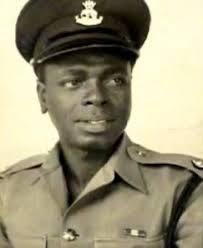“Nigeria We Hail Thee”: Why was the Nigerian National Anthem Replaced in 1978?
Nigeria’s transition from “Nigeria We Hail Thee” to “Arise O Compatriots” in 1978 met with mixed reactions. While some welcomed the new anthem with open arms, others were nostalgic for the old one.
However, proponents of the new anthem felt it was a significant step towards attaining sovereignty and greater national counsciousness. A national contest was held in 1978, and the lyrics of the anthem were composed from the best five entries. You can read more of the history by clicking below.
Reasons for Abandonment of “Nigeria, We Hail Thee” in 1978
Here are the top four factors that contributed to the replacement of the former Nigerian anthem:




1. Colonial Origins and Lack of Cultural Representation
The original anthem had a strong connection to Nigeria’s colonial past. It was written by Lillian Jean Williams, a British expatriate in Nigeria. Its music was composed by Frances Berda.
Many argued that the anthem’s British origins didn’t fit an independent Nigeria and failed to capture the country’s diverse culture. It was believed that the anthem didn’t embody the “Naija” spirit and aspirations of the Nigerian people.
2. Desire for an Indigenous Anthem Promoting Unity
Supporters wanted an anthem created by Nigerians for Nigerians—an anthem that would truly reflect Nigeria’s cultural diversity and unite its many ethnic groups. The 1970s were marked by national pride and a push towards embracing indigenous culture.
The years following independence were tumultuous, with the Nigerian Civil War and subsequent national reconciliation efforts. A new anthem was seen as a means to foster unity and national purpose, helping Nigerians move forward together.
Tai Solarin and Dennis Osadebay were part of Nigerian scholars who called for a new National Anthem. They believed that our anthem should be composed by someone who does not have only sympathy, but also empathy for the nationals to summon dedication and arouse emotion.
Tai Solarin and Dennis Osadebay were part of Nigerian scholars who called for a new National Anthem.
3. Public Sentiment and the Need for Patriotic Inspiration
Public sentiment played a significant role in the change. Many Nigerians felt the old anthem lacked the patriotic fervor needed to inspire the nation. There was a demand for an anthem that resonated more deeply with their experiences and hopes, inspiring a greater sense of national pride and unity.
The new anthem, “Arise, O Compatriots,” was the product of a national contest, with lyrics written by five Nigerian citizens. This shift represented Nigeria’s break from the past and a move towards forming a fully realized cultural identity.
4. Military Influence and Political Stability
In 1966, Nigeria experienced its first military coup, leading to political instability and military regimes. By 1978, the country was under military rule, and the government sought to promote a stronger national identity. The military administration of General Olusegun Obasanjo saw the need for symbols that resonated more with Nigerians.
The Lyrics of the Old National Anthem
Nigeria we hail thee,
Our own dear native land,
Though tribe and tongue may differ,
In brotherhood we stand,
Nigerians all, and proud to serve
Our sovereign Motherland.
Our flag shall be a symbol
That truth and justice reign,
In peace or battle honour’d,
And this we count as gain,
To hand on to our children
A banner without stain.
O God of all creation,
Grant this our one request,
Help us to build a nation
Where no man is oppressed,
And so with peace and plenty
Nigeria may be blessed.We hope you enjoyed this post. Drop your thoughts in the comment section below. If you’d like to listen to or download the MP3 of the old national anthem, Kindly click the link below.
